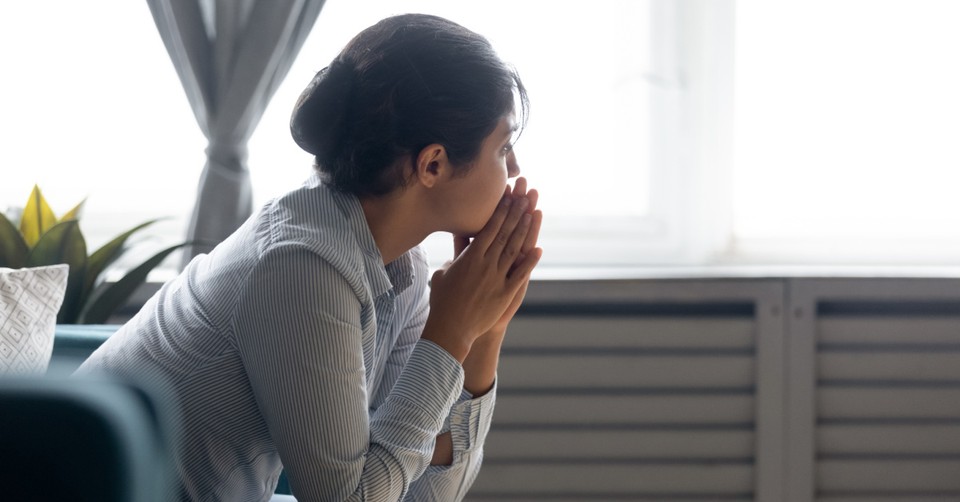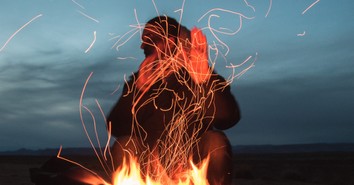When Your Child Says "I'm Gay"

Our daughter just told us she's gay. What do we do first?
I'm glad you're taking the time to become informed before responding. The intense emotions that accompany an announcement like this can often cloud your responses as parents. Harsh actions rarely breed the kind of dialogue needed. Instead, they create distance in the relationship that can be almost impossible to overcome. Let me offer four practical things to do to direct your emotions in a more positive way.
1. Take a deep breath, then listen and learn.
The first thing to do, once you recover from the initial shock, is to locate as many pertinent resources you can. Find books and other resources that address the development of homosexuality. Educating yourself on the contributing factors of same-sex attraction may be very enlightening. It may also be very painful.
Facing the factors that may have contributed to your child's struggle—whether peer ridicule, sexual abuse, or the most painful of all, your own involvement—can be more than some parents can take, especially when they've just gotten the news. If the pain becomes more than you can bear and you find yourself needing to set these books aside for a while, don't feel guilty.
But understanding the genesis of your child's homosexuality can do a lot of things for you—both good and bad; it can give you greater empathy, bring about (or eliminate) feelings of guilt, certify that "gut feeling" that made you uncomfortable about "that one relationship" or encourage dialogue about sexual abuse.
Whatever the particulars of your case, at some point you're going to have to face the reality of your child's struggle if you seek any resolution in your own heart and, more importantly, in the relationship with your child. If you need time to learn, assimilate, and process this information, that's fine—but don't use that as an excuse to avoid conversation. Nothing is more uncomfortable than walking around the "giant pink elephant" in the living room. Acknowledge your need for time to process this news, and when you're ready, invite the conversation. Remember that your child has feelings too and may need some feedback or reassurance from you.
"If your child is experiencing same-sex attraction, feels shame and fear about that, and is concerned whether you would reject them, listen to their fears," advise Mark Yarhouse and Lori Burkett in their book, Sexual Identity: A Guide to Living in the Time Between the Time. "Listen for their story, and provide your child with assurances of your love, followed by actions that clearly reinforce what you have verbally communicated."
2. Give yourself permission to grieve.
I've already acknowledged the grief that often accompanies a child's disclosure of homosexuality, but I'm going to let Anita Worthen, one of my dearest friends and coauthor of the book Someone I Love Is Gay, add her important perspective. Anita isn't just speculating about what you're going through—she's been there, and she's well acquainted with the guilt that often paralyzes parents of gay children.
"Parents are prime candidates for guilt. To their anguish, a child has gone astray. Soon they are stuck in the 'if only' syndrome: If only they had been a better parent...if only they had become a Christian earlier in life...if only they had lived their faith more consistently...the list is endless. Thousands of condemning thoughts plague our minds when things derail. Suddenly we are filled with insights on how we could have (perhaps) prevented this latest tragedy.
There are specific issues around which parents feel guilt. Let's look at the most common.
I was an imperfect parent. This is true, but all parents make mistakes. So welcome to the human race! You are no different from any other parent. And let's face the facts here: Some kids from the worst homes come out smelling like roses.
All of us have read stories of abused or underprivileged children who have grown up to become famous surgeons, lawyers, or pastors. Against all odds, these kids have survived and gone on to make huge successes of their lives.
We also hear about the child from the 'perfect' home who dropped out of school and got arrested for using illegal drugs. How is that person's mother coping?...
Parents of homosexual children carry a lot of shame. Despite huge gains that have been made in terms of pro-gay activism, the majority of people in our society still disapprove of homosexuality. And parents share the stigma of their child's sexual behavior. This is particularly true for parents who belong to conservative Christian churches...
I caused my child's homosexuality. This statement is totally false and is probably the biggest lie you will have to stand up against. No one person has the power to cause another's homosexuality. At worst, a parent-child relationship may be one factor in a whole group of complex influences.
So it's not fair to blame parents as the cause of their child's homosexuality. At the same time, some parents go to the other extreme and insist that family factors have absolutely nothing to do with their child's struggles. Actually, the truth lies somewhere in between, and the situation is different for every family."
Someone I Love Is Gay is a must-read for anyone facing the acknowledgment of a loved one's homosexuality. On this topic of grieving, I highly recommend the chapter "The Grief Cycle: Surviving the Emotional Turmoil."
3. Find some support.
You aren't the only person in the world who has a gay loved one. You aren't the only one embarrassed by this. You aren't the only one hurting. If you don't believe me, maybe I can persuade you by sharing one parent's story.
After giving my testimony at a homosexuality conference, I was approached by a mother I will never forget. While struggling to maintain her composure, she told me, "Before I got here today, I didn't feel like I could go on. I've lived the last couple of days closed up in my bedroom. I've closed the blinds, I've turned off the phone. There was no way I could face the world. Last week my daughter told me she was gay." This must have been the first time this dear lady let herself say the words out loud, because her sobs became uncontrollable. When they subsided, the truth of her next words pierced my heart. "She's my only child...my only daughter. There may never be a wedding, I may never have grandchildren. I know things may never change, but just being here today amongst others that I know are hurting like me has given me the ability to go on."
You aren't suffering alone. If you behave as though you are, you have no one to blame but yourself. A very strong network of support is at your disposal. Focus on the Family can provide resources, counseling, and prayer. Exodus International can help you understand the root causes of homosexuality and offer hope and healing to those who want to overcome same-sex attraction—and their loved ones. And Parents and Friends of Ex-Gays (P-FOX) can connect you with a support group near you.
You may feel ashamed. You may be afraid other people will find out. These feelings are hard to handle, but the weight of suffering alone is far more detrimental. One of the most important lessons I've learned through my healing process is that healthy people ask for what they need. You must admit your need, make yourself vulnerable, and ask for help. Whether you need a friend's shoulder to cry on, understanding from another parent who's been where you are, or just someone to bounce ideas off of, ask for help.
4. Examine your expectations.
We often live up to our parents' expectations, whether good or bad. In light of that, the only suggestion I have to offer regarding finding out about your child's homosexuality is to pray for the best and prepare for the worst. Parents rarely want their children to grow up to become homosexuals, and your greatest desire is probably for your child to leave the gay lifestyle. People have left homosexuality, but be wary of allowing your hope to become an expectation. Such expectations feel more like commands to your child, and those feelings will strain your relationship. In their book, Sexual Identity, Mark Yarhouse and Lori Burkett underscore this truth:
"With the recent ads from ex-gay ministries citing examples of people changing their sexual orientation, some parents may have the unrealistic expectations that their child can make a complete change in their sexual orientation. Sending this message to your child may set them up for feelings of failure and rejection, especially if they continue to invest time and financial and emotional resources in professional treatment or paraprofessional ministry to facilitate change."
Taken from 101 Frequently Asked Questions About Homosexuality by Mike Haley; Published by Harvest House Publishers, Eugene, OR; Used by Permission.
Photo credit ©Getty Images/Fizkes
Originally published October 21, 2024.





